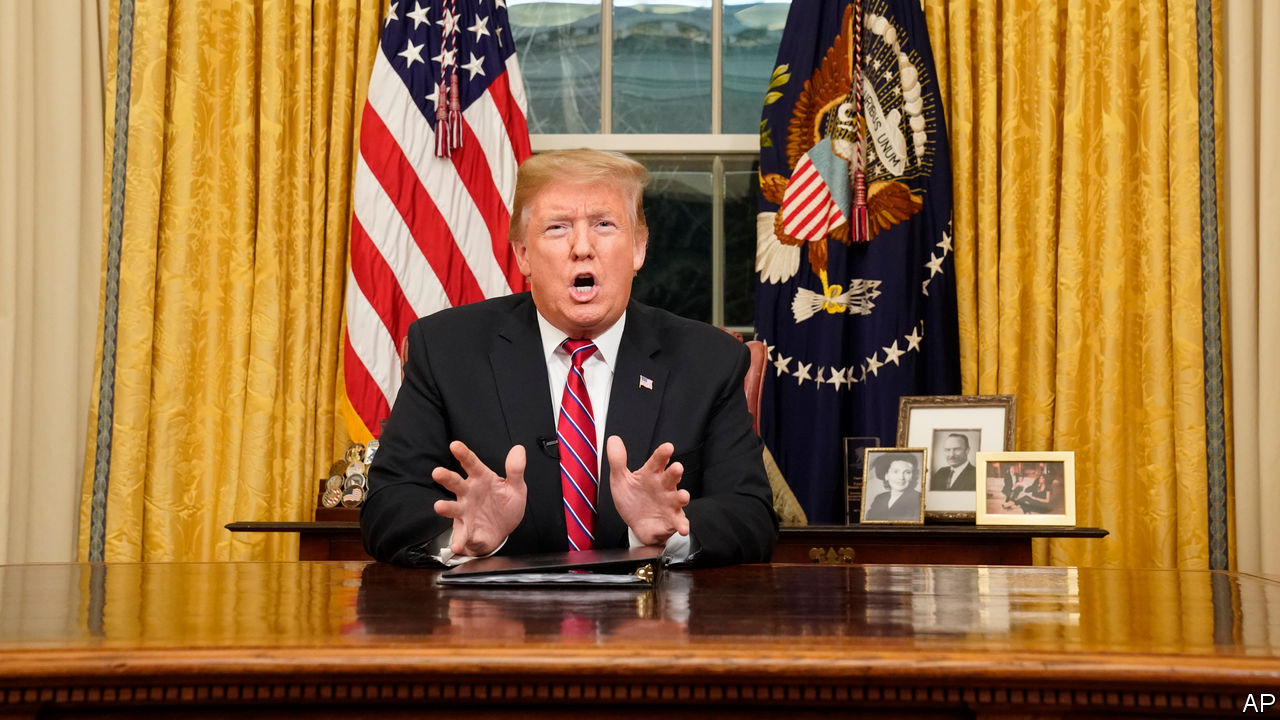Perhaps—but the move would be a fraught political ploy
Possibly. But the path ahead, should Mr Trump take this route, will be bumpy. Presidents do have wide discretion to declare national emergencies and take unilateral action for which they ordinarily need legislative approval. A “latitude”, John Locke wrote in 1689 (and his writings influenced the US constitution), must be “left to the executive power, to do many things of choice which the laws do not prescribe” since the legislature is often “too slow” in an emergency. American presidents have, for example, suspended the constitutional guarantee of habeas corpus (Abraham Lincoln during the Civil War), forced people of Japanese descent into internment camps (Franklin Delano Roosevelt during the second world war) and imposed warrantless surveillance on Americans (George W. Bush after the September 11th attacks). With some notable exceptions, including when the Supreme Court baulked at Harry Truman’s seizure of steel mills during the Korean War, the judiciary has usually blessed these actions. In addition, Congress has passed dozens of laws—New York University law school’s Brennan Centre for Justice has catalogued 123—giving presidents specific powers during emergencies.


No comments:
Post a Comment